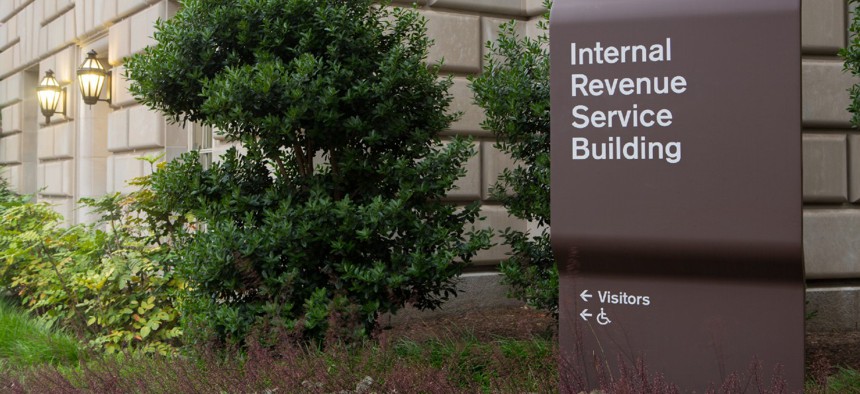
Skyhobo / iStock.com
As IRS Prepares for Onslaught of Hiring, Taxpayer Advocate Warns It Is Ill-Prepared
Challenges IRS has faced in the 2021 tax season could get worse without staffing surge and corresponding improvements to hiring processes, watchdog says.
The Internal Revenue Service has faced severe challenges in the 2021 tax season, which its internal taxpayer advocate warned would only worsen if it does not boost its staffing and improve its onboarding process.
More than 35 million tax returns are still awaiting processing, the National Taxpayer Advocate found, including 17 million paper returns that have yet to be addressed. There are four times as many calls to the IRS as two years prior and just 7% of them are connecting to an “assistor.” The agency still has seven trailers full of mail that has yet to be opened and is awaiting delivery to a processing center.
Many of the issues at IRS relate back to a lack of resources and, specifically, staff at the agency. The IRS’ workforce declined by 22%, or 21,000 employees, from fiscal years 2010 to 2019. The Biden administration has vowed to reverse that trend, seeking new funding for hiring it said would boost tax revenue and help pay for other priorities. That effort is a necessary one, the advocate said, but a push that could prove difficult to enact.
“If the IRS does not make significant changes, these staffing shortages will compound and pose significant threats to the U.S. Treasury and harm taxpayer services and taxpayer rights,” Erin Collins, the taxpayer advocate, said in a report to Congress this week. She added, however, that she is “concerned that the IRS’s Human Capital Office is not equipped to handle the influx of hiring the IRS needs.”
Absent significant reforms, she said, “additional hiring needs and backfilling of normal attrition will continue to challenge the IRS.”
Collins noted that in fiscal 2020, IRS set a goal of an 80-day average to fill vacancies. It instead saw an average of 120 days. Between 2017 and 2019, IRS failed to hire for 5,000 slots Congress had funded. Between retirement-eligible employees and standard turnover, IRS can expect to lose as much as one-third of its workforce next year.
Some of the challenges are outside of management’s direct control, Collins noted. IRS cannot pay as much as the private sector, faces requirements in hiring that slow down the process and has a mandate in its labor agreement to first search internally for most openings. Collins encouraged management to renegotiate that provision with the National Treasury Employees Union.
She also criticized a new human resources structure that removed a representative from each office in favor of more centralization. The new set up slows down the process and creates a disconnect between HR and the hiring component, the watchdog said. IRS officials complained they do not have a central point of contact for each hire, meaning they do not know to whom to reach out with questions.
IRS Commissioner Charles Rettig recently pleaded with Congress to provide his agency with direct hire authority to remove many of the hurdles that have slowed onboarding at IRS and around government. He and the Biden administration are seeking a mandatory funding stream for the agency to remove some of the uncertainty inherent within the annual appropriations process.
The taxpayer advocate also pushed for more proactive recruiting by IRS, including new programs to get recent graduates in the door. She called retention IRS’ biggest challenge, exacerbated by the disproportionately large number of retirement-eligible workers. She called for more career pathway opportunities, including through new rotational programs within the agency. Collins said IRS should hire more HR personnel, restructure its human capital office and improve communications between HR and hiring managers.
IRS management conceded it has challenges with its workforce, but suggested it made improvements to reduce the backlog of hiring requests, improve career development opportunities and solicit advice from a consultant. Collins applauded the improvements, but signaled they were still insufficient.
“The IRS’ inability to attract, hire, and retain younger generations of workers has been going on for too long, and the IRS needs to make significant changes,” she said.







